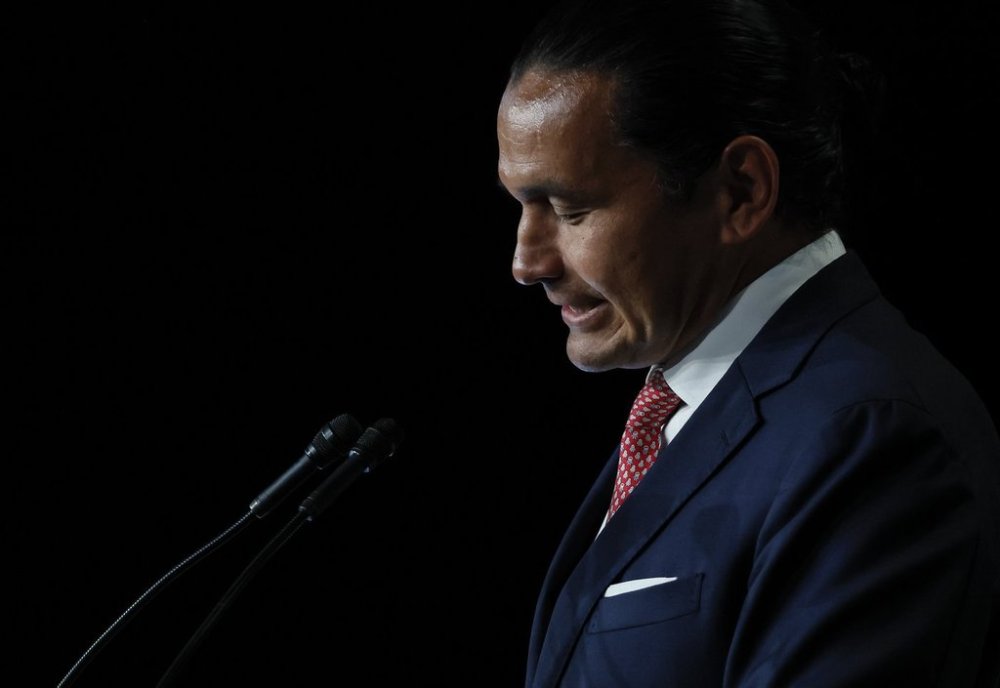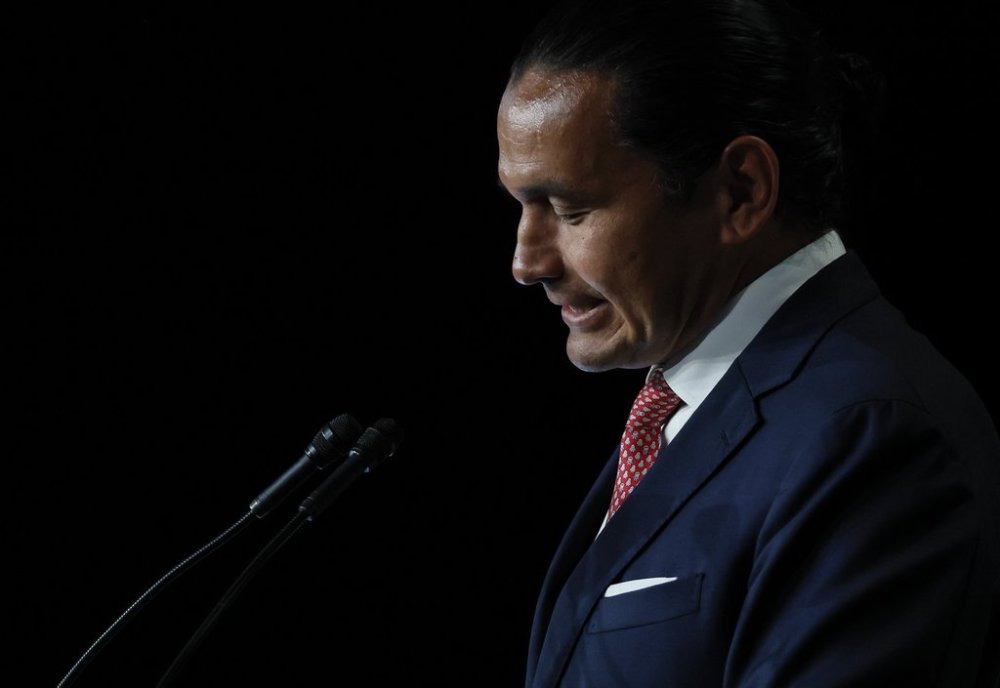Manitoba premier says people with child porn should be buried under prisons
Advertisement
Read this article for free:
or
Already have an account? Log in here »
We need your support!
Local journalism needs your support!
As we navigate through unprecedented times, our journalists are working harder than ever to bring you the latest local updates to keep you safe and informed.
Now, more than ever, we need your support.
Starting at $15.99 plus taxes every four weeks you can access your Brandon Sun online and full access to all content as it appears on our website.
Subscribe Nowor call circulation directly at (204) 727-0527.
Your pledge helps to ensure we provide the news that matters most to your community!
To continue reading, please subscribe:
Add Brandon Sun access to your Free Press subscription for only an additional
$1 for the first 4 weeks*
*Your next subscription payment will increase by $1.00 and you will be charged $20.00 plus GST for four weeks. After four weeks, your payment will increase to $24.00 plus GST every four weeks.
Read unlimited articles for free today:
or
Already have an account? Log in here »
WINNIPEG – Manitoba Premier Wab Kinew stirred up controversy Monday in denouncing a Supreme Court of Canada ruling on child pornography and calling for offenders to be buried underneath prisons.
“Child sexual abuse images and video, this is like one of the worst things that anyone can do,” Kinew told reporters.
“Not only should (you) go to prison for a long time, they should bury you under the prison. You shouldn’t get protective custody. They should put you into general population, if you know what I mean.”

The high court last week ruled the one-year mandatory minimum jail sentences for accessing or possessing child pornography are unconstitutional. In a 5-4 decision, the top court said the minimum sentences remove judges’ discretion to impose sentences other than imprisonment when appropriate.
Conservative politicians such as Opposition Leader Pierre Poilievre, Alberta Premier Danielle Smith and Ontario Premier Doug Ford have demanded Ottawa overrule the decision with the notwithstanding clause. Governments can invoke the clause to override certain sections of the Charter of Rights and Freedoms.
Kinew, a New Democrat, said he stands with Smith, Ford and others, and feels the court ruling does not make sense to the average person. He called the ruling “disgusting,” and used the slang word “skinners” to refer to sex offenders.
The Criminal Defence Lawyers Association of Manitoba condemned Kinew’s remarks.
“We think the comments are unhelpful from an elected representative. We request that the premier be careful with his comments and turn the temperature down,” the association said in a written statement.
Kinew does not understand that the ruling deals with rare, hypothetical cases where circumstances may warrant a sentence less severe than a year in prison, the group said.
“That the premier is critical of this decision, likely without understanding what the decision is and is not, is probably unsurprising.”
The association also criticized Kinew for suggesting vigilante justice.
“What disappoints us is the suggestion, from the highest elected official in our province, that extrajudicial vigilante justice is appropriate and even desirable.
“The system of laws that govern our society are designed to deal with all individuals fairly and provide just sentences that take into consideration a variety of competing interests in how they’re meted out. The premier’s comments are an affront to this system and an affront to the rule of law in general.”
Kinew has been criticized previously for remarks about the justice system. Last year, he apologized to defence lawyers for comments he made when his NDP caucus expelled backbencher Mark Wasyliw.
Wasyliw, who is a criminal defence lawyer, was removed partly because one of his colleagues represented disgraced fashion mogul Peter Nygard on sex charges.

At the time, Kinew said someone cannot be affiliated with both Nygard and the NDP.
Kinew later apologized personally to Wasyliw’s colleague and told the legislature he should have simply said there were irreconcilable differences with Wasyliw in caucus.
Kinew recently introduced a bill that would require judges to weigh in any time the Manitoba government invokes the notwithstanding clause to override Charter rights. Judges would not have the power to stop the government, but would issue an opinion on whether the bill would be unconstitutional if not for the notwithstanding clause.
Kinew recently criticized Quebec, Alberta and Saskatchewan’s use of the clause, saying the governments in those provinces were using it to attack the rights of vulnerable people.
The Saskatchewan government invoked the clause for a law that prevents children under 16 from changing their names or pronouns at school without parental consent.
The Alberta government employed the clause last week as part of a bill ordering striking teachers back to work.
Quebec used the notwithstanding clause to prohibit some public-sector workers in positions of authority from wearing religious symbols while on the job.
This report by The Canadian Press was first published Nov. 3, 2025.
